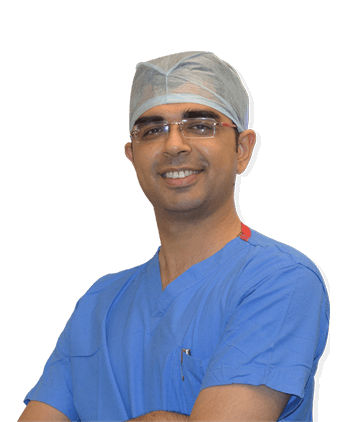Why should I consider Weight Loss Surgery?
Because it works! Surgical treatment for obesity is the ONLY treatment that reliably produces significant and sustained weight loss. People with clinically severe obesity are at great risk for developing many associated medical conditions. Research has shown that surgical treatment results in significant weight loss and improvement in most problems associated with obesity. Surgical treatment for clinically severe obesity has been endorsed by the National Institutes of Health, the World Health Organization, the American Heart Association, the American Dietetic Association, and the American Obesity Association.
Does my weight alone justify such extreme measures?
Yes. Morbid obesity is an independent risk factor for premature death, with the risk rising as the BMI increases. People with a BMI of 30 have a relative risk of dying early that is 1.3 times greater than normal weight individuals. By the time the BMI is 40, the risk is close to 3 times as great.
Bariatric Surgery
Bariatric surgery is a major surgery involving the gastrointestinal tract. The stomach and intestines are modified so that less food can be consumed or absorbed, which leads to a substantial loss of weight that can be maintained for years. Liposuction is a from of cosmetic surgery in which areas of the body are reshaped or resculpted by removing excess amounts of fat in those areas. The purpose of liposuction is not to produce weight loss.
If you can lose the necessary amount of weight (and keep it off) through diet and exercise- more power to you! Ninety-five percent of people considering weight loss surgery have tried (sometimes numerous times) and failed. I like to use this analogy: If someone asks, “If I can buy a lottery ticket and win the lottery, why do I have to work for a living?” my answer would be, “You don’t. If it is easier and less painful to win the lottery and you can do it, then go for it.” For a morbidly obese individual, losing a significant amount of weight is comparable to winning the lottery.
I like to answer this question by asking another question: “is it healthy to be 45 kgs overweight?” The rapid weight loss experienced after
weight loss surgery is extremely gratifying psychologically and physically. If you eat properly, making sure you get enough protein, there should be no ill effects from it.
In addition to the well-known ill effects of smoking, it can complicate surgery by increasing the incidence of pneumonia and pulmonary problems immediately after surgery. I recommend that patients stop smoking at least several weeks before surgery.
It depends – may be yes, may be no. There is a strong relationship between obesity and gallstones and a high incidence of cholecystitis (gallbladder attacks) during rapid weight loss in patients with gallstones. For this reason, it is customary for patients to be screened for gallstones before surgery. Patients with documented gallstones should have their
gallbladders removed at the time of surgery.
Weight loss by any means often results in considerable improvement or complete resolution of most obesity related medical conditions. The degree of improvement is not necessarily related to the amount of weight loss. “Improvement” refers to a reduced requirement for treatment, whereas “complete resolution” implies a cure. Dramatic improvement occurs in abnormalities associated with diabetes. Within days of surgery, fasting blood-sugar levels are normal, blood levels of insulin are lower, and most patients are able to be discharged without insulin. There is also improvement in hypertension, blood lipids, and sleep apnea in a large percentage of patients.
The operation maybe reversed only in an emergency. Any weight loss procedure should be thought of as a permanent solution, because if it is reversed, the weight will be regained. Although technically feasible, re-operative surgery is much more difficult and complex and the result will NOT, in all likelihood, restore the individual to the exact same state as before surgery. The impact of weight loss on a person’s life is so immense that it is highly unlikely that one would ever demand for reversing the procedure.
Most patients lose between 50 to 70 percent of their excess body weight over about one to one and half years. Some reach their ideal weight but most don’t. Excess body weight is the weight above your ideal body weight.
Long-term results after sleeve gastrectomy and Roux-en-Y gastric bypass have shown that patients usually regain less than 15 percent of the weight they lost after ten years. However, if you go back to your old eating habits and don’t exercise at all, you might gain more than that.
No. In fact, fertility problems improve with weight loss. Carrying a baby to term is safer after weight loss surgery. However, it is recommended that women use birth control and avoid becoming pregnant while they are still losing weight.
Yes. People can be too young. You need to have stopped growing and you must have a mature bone age. In addition, you must understand the surgery and want it. You can’t have an operation because your friends or your parents want you to. You need to be able to give informed consent, which means you make an educated decision and then give your permission for the procedure. It is also necessary that your parents are supportive of your decision and understand the role they will need to play in your case and recovery.


